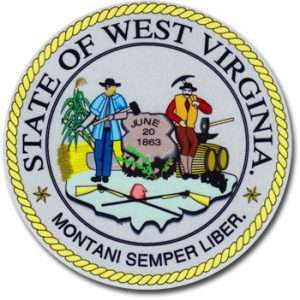West Virginia Lawmaker Champing at the Bit, Wants to Legalize Sports Betting, Online Gambling
 The big news in poker this week, as I’m sure you have read by now considering you are on a poker news site, is that both chambers of the Pennsylvania legislature have passed a bill that will legalize online poker, slots, table games, and daily fantasy sports. The industry and poker fans have been waiting for this for quite some time (and will have to wait until the Governor signs the bill to be truly happy); West Virginia state delegate Shawn Fluharty has mixed emotions about it. On the one hand, he is a staunch online gaming supporter, but on the other hand, he is afraid that West Virginia will fall behind if it doesn’t act soon. After the Pennsylvania bill passed, Delegate Fluharty made his feelings known.
The big news in poker this week, as I’m sure you have read by now considering you are on a poker news site, is that both chambers of the Pennsylvania legislature have passed a bill that will legalize online poker, slots, table games, and daily fantasy sports. The industry and poker fans have been waiting for this for quite some time (and will have to wait until the Governor signs the bill to be truly happy); West Virginia state delegate Shawn Fluharty has mixed emotions about it. On the one hand, he is a staunch online gaming supporter, but on the other hand, he is afraid that West Virginia will fall behind if it doesn’t act soon. After the Pennsylvania bill passed, Delegate Fluharty made his feelings known.
On Thursday, October 26th, Fluharty posted on Twitter, “With PA passing sports betting, online poker and daily fantasy legislation today, WV must act this session or be left in the dust. #wvpol”
On Facebook, he made a similar, longer post, thanks to the lack of character restrictions:
I may sound like a broken drum, but it is absolutely vital that West Virginia passes my sports betting legislation this upcoming session. If not, we will be left in the dust, again, on new revenue for our state. Our neighbors understand this importance, that’s why Pennsylvania is on the brink of passage. If we refuse to compete with our bordering states for new revenue, the same playbook will continue to be used. What’s that playbook? Raising taxes. The people are tired of it. #passmybill
The bill to which Fluharty speaks is House Bill 2751, introduced into the House Judiciary Committee on March 1st, 2017, then the Finance Committee. It is a simple bill, one which, as you might have guessed, would legalize sports betting in West Virginia. The bill addresses PASPA, a law passed in 1992 which outlawed sports betting in all but four grandfathered states: Nevada, Oregon, Delaware, and Montana (Nevada is the only one of the four that has “real” traditional sports wagering). New Jersey is currently fighting PASPA in an effort to get its own sports betting industry going. Fluharty’s bill, interesting, would bypass all of that, saying PASPA is essentially a bunch of crap, so let’s ignore it:
….the U.S. Congress has no power to prevent state governments from authorizing sports betting as a form of gaming and therefore, the Legislature finds that it is reasonable and appropriate, for the State of West Virginia to proceed with legalizing sports pool betting pursuant to this article.
Fluharty also introduced House Bill 3067 in March in an effort to legalize online gambling, including online poker. The bill states that “the legislature finds….”
(2) That legalization of video lottery and table games in West Virginia has delivered substantial benefits to the state, including the creation of thousands of significant contributions to racing and agricultural industries;
(3) Developments in technology and recent legal decisions have created an opportunity to legalize interactive poker as a means to further enhance and complement the benefits delivered by casino gaming and licensed facilities to or for the benefit of the communities in which they operate;
HB 3067 authorizes the West Virginia Lottery Commission – which would, in the case of both bills, be the entity to regulate online gaming – to enter into interstate gaming compacts in order to increase the size of the potential player pool. Nevada and Delaware have had such a reciprocal agreement for some time now and just this month, New Jersey joined them, though the Garden State’s addition has not been implemented yet. Assuming the Governor signs the Pennsylvania bill, we should expect Pennsylvania to also combine with the other three states at some point.
Pennsylvania and New Jersey have large enough populations to support an online poker industry by themselves (though New Jersey’s has certainly not been incredibly successful and will benefit from the interstate compact), but West Virginia would definitely need the other states as partners. It is in the bottom third of the U.S. in terms of population with an estimated 1.831 million residents. That’s more than a million fewer than Nevada, which has struggled to keep just one online poker room afloat.
Fluharty’s sports betting bill doesn’t set forth much in the way of regulations, leaving that up to the Lottery Commission. It does stipulate that operators will pay a two percent tax of the “total wager” into a “Sports Betting Special Revenue Fund.”
The only other real rule put forth is that collegiate sports and Olympic sports are the only amateur sports on which sports betting is allowed, implying that operators can’t accept bets on things like high school sports.



















COMMENTS